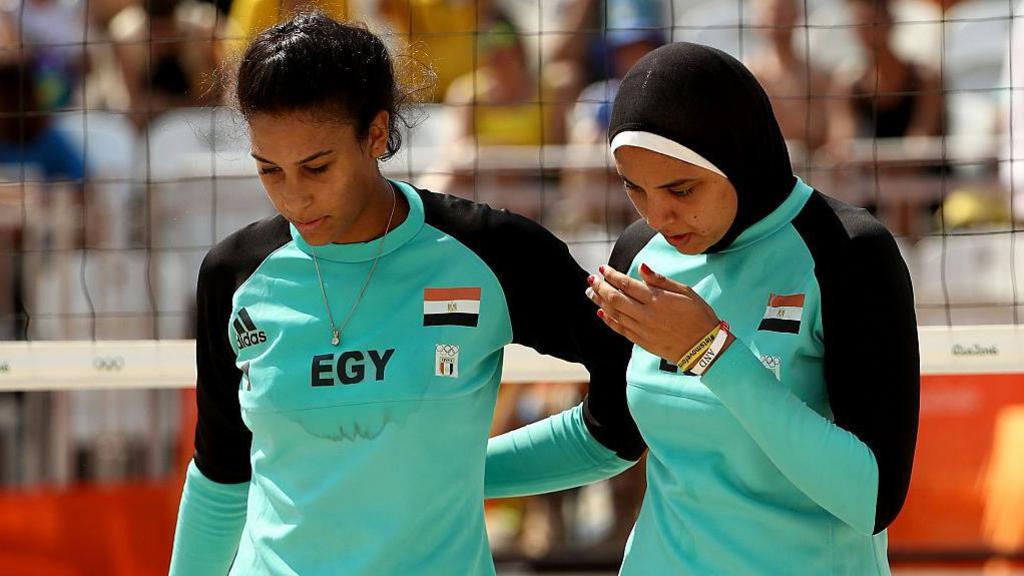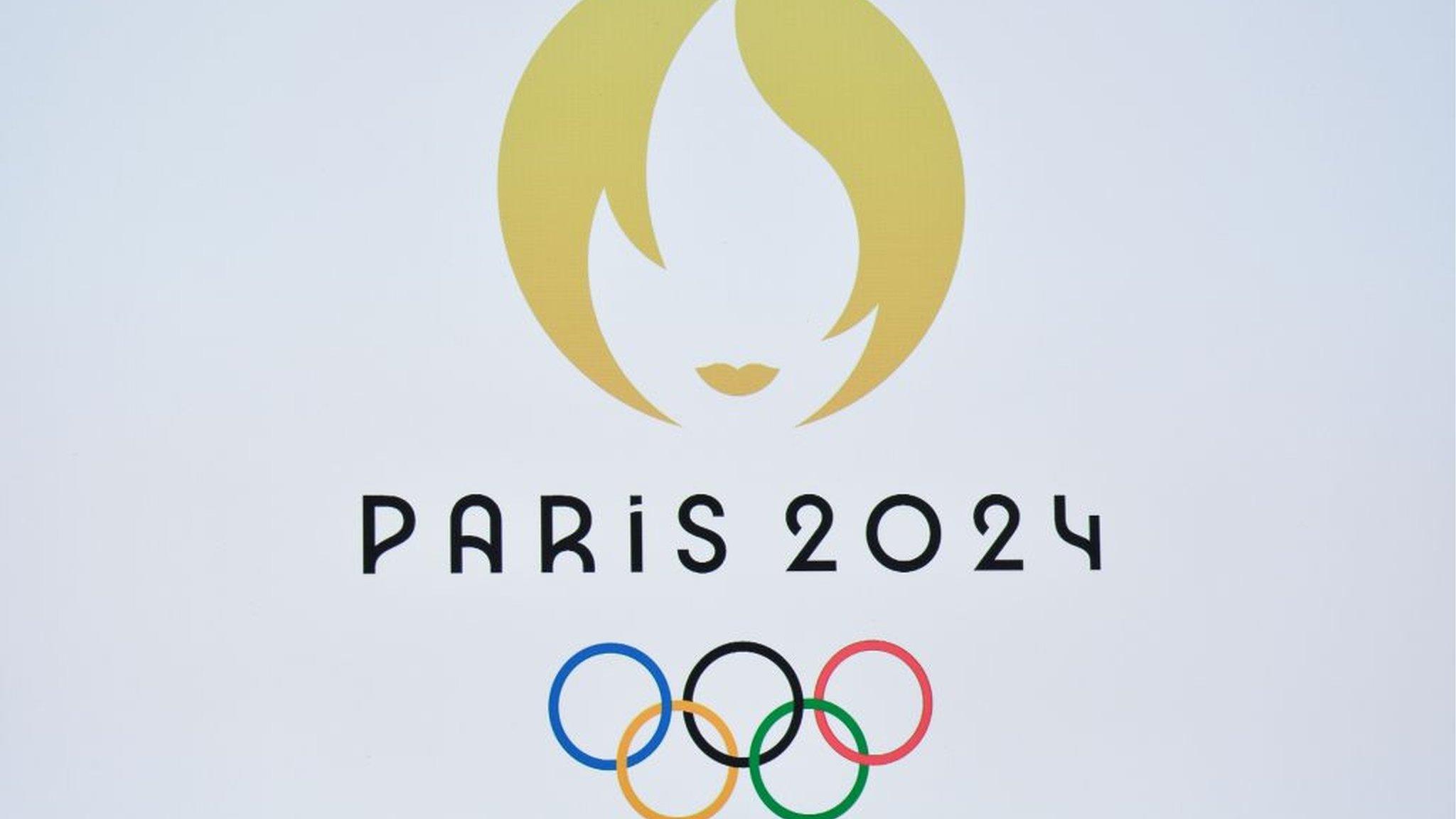IOC urged to help overturn France's hijab ban

Doaa Elghobashy (right) made history when she was the first woman to wear the hijab in Olympic beach volleyball at the 2016 Games in Rio
- Published
Sports and human rights organisations have called on International Olympic Committee president Thomas Bach to help overturn a ban on French athletes wearing the hijab.
The International Olympic Committee (IOC) announced in September that athletes would be free to wear a hijab in the Paris 2024 Olympic Games athletes' village without any restriction.
However, French Sports Minister Amelie Oudea-Castera has barred French athletes wearing the hijab at the Games, saying they must respect the country's strict separation of religion and state.
French citizens are largely free to express any religious customs and symbols but it is stipulated that state and public institutions - the Olympics falling into that category - should be expressly free of them.
Amnesty International and 10 other groups have signed a letter to Bach, saying the ban goes against the Olympic Charter.
"The hijab bans in sports have resulted in many Muslim athletes being discriminated against, invisibilised, excluded and humiliated, causing trauma and social isolation," the letter continued.
The controversial dress code at sport's biggest party
- Published16 April 2024
"Therefore, we call on the IOC, as Leader of the Olympic Movement, use your considerable leverage in advance of Paris 2024 to publicly call on French sporting authorities to overturn all bans on athletes wearing the hijab in France – at all levels of sport.
"This important step would ensure the Olympics and Paralympics leave a true legacy towards gender equality in France by ensuring all women and girls can have their right to non-discrimination respected and protected, and their right to participate in sports guaranteed."
The stance has been criticised by some international bodies, however, the ban carries considerable support in France.
"It is a complicated and very, very sensitive issue," Sebastien Maillard, an associate fellow at think tank Chatham House who has reported on French politics and society during his career, told the BBC recently.
"In the United Kingdom religion is displayed quite comfortably, whereas in Paris it is often seen as something more provocative."
Related topics
- Published17 April 2024
